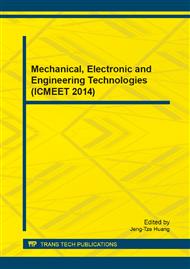p.443
p.447
p.451
p.455
p.460
p.465
p.470
p.476
p.481
An Analysis of Factors Influencing Foreign Language Self-Efficacy Based on C5.0 Decision Tree Algorithm in Data Mining
Abstract:
Based on inter-correlation and permeability among disciplines, the author makes an attempt to apply the information science to cognitive linguistics to provide a new perspective for the study of foreign languages. The correlation between self-efficacy and such four factors as anxiety, learning strategies, motivation and learners’ past achievement is analyzed by means of data mining and the extent to which the above factors affect self-efficacy in language learning is explored in this paper. The paper employs the decision tree algorithm in SPSS Clementine. C5.0 decision tree algorithm is adopted to analyze data in the study. The results are elicited from the researches carried out in this paper. The increased anxiety is bound to weaken learners’ motivation over time. It is obvious that learners have low self-efficacy. It is very important to employ strategies in foreign language learning. Ignorance of using learning strategies may result in unplanned learning with unsatisfactory achievements in spite of more efforts involved. Self-efficacy in foreign language learning may be weakened accordingly. Learners’ past achievement is a reference dimension in measuring self-efficacy with weaker influence.
Info:
Periodical:
Pages:
460-464
DOI:
Citation:
Online since:
April 2014
Authors:
Keywords:
Price:
Сopyright:
© 2014 Trans Tech Publications Ltd. All Rights Reserved
Share:
Citation:


